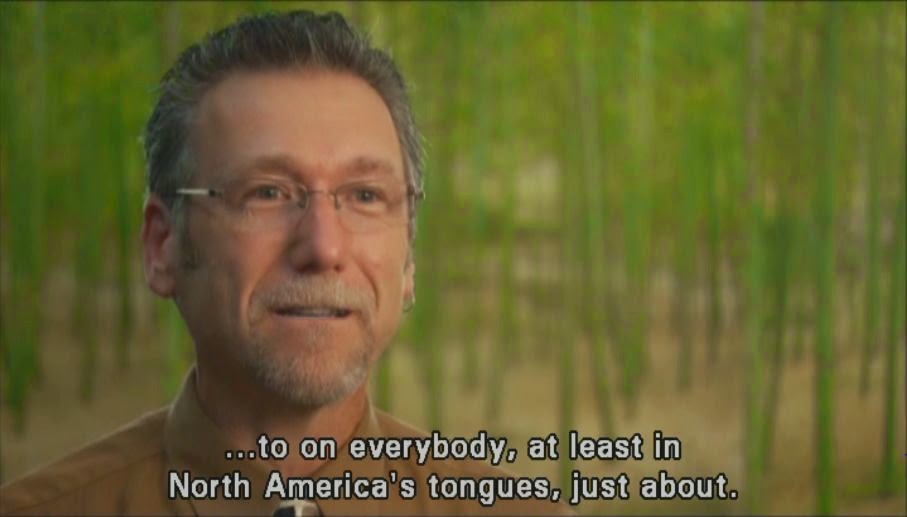At the end of my lengthy article Eradicating Poverty, I posed the question of Help as Exponential? There are seven billion people on earth, the majority of them mired in poverty and just a fraction of a minority reaping the privilege of luxury, access and comfort. Still what if all of us needed help in some form or another, how do we scale our efforts accordingly? I've been weighing (1) geometric progression, (2) Fibonacci sequence, (3) Mozart opera, and (4) Rubik's Cube, for clues and ideas about how to answer that very question.
Here are cases in point, related to Mozart opera in particular:
 |
| Teaching the world to play William Tell |
@DrRonArt may like this version with public on harmonicas http://t.co/09EvowGhTs
— david mam (@peoplefilm) June 15, 2014
This dude found three of my Twitter profiles, and tweeted the same tweet. It was spam, I thought at first. The site looked like one of those for sponsored content that are meant to fool you, for example, with the next-arrow, so you end up clicking on an ad. Be that as it may, I watched the entire 4:21 video, and it actually resonated with my aims for The Core Algorithm:
Local people in Gateshead [United Kingdom] were invited to learn to play a harmonica in order to help make a film short. It has been created as a metaphor for health, happiness and wellbeing in Gateshead town centre as part of the Happy Healthy Gateshead Project. The project aimed to promote the NHS's 5 Steps to Wellbeing and encourage people in and around the town centre to practice new ways to support their health and happiness as research suggests that building 5 ways to wellness into your daily life can add 7,5 years to your life! Gateshead Council's Arts Development Team worked with award winning local film maker Anton Hecht to create the innovative film. Members of the public were asked to play a few notes each, they were then filmed sequentially and edited to produce a version of Rossini's well known tune - The William Tell Overture.Reference: Teaching the world to play William Tell.
The Happy Healthy Gateshead Project took a common, inexpensive musical instrument; taught people how to play simple bars of a well-known music; and got them to play and have fun together. The key word being together.
Gateshead, while a large town in the UK, is certainly not the world. But what about this next one?
No matter who you are, no matter where you go in your life, at some point you're going to need somebody to stand by you.
 |
| Playing for Change |
I heard about Playing for Change from a colleague five years ago, as I fervently tried to launch a handful of projects under Dr. Ron Art. But Dr. Ron Art needed far more design and development, and I needed to dispense with a handful of colleagues for various reasons. So those projects stayed put, and relegated PFC to the back of my mind.
Until recently when a friend on Twitter posted this across-the-world collaboration of `Stand By Me. Yes, Playing for Change resonated with The Core Algorithm, too.
Another friend posted this music video of Michael Jackson, Justin Timberlake & Co., and I fell in love with the oh-so-smooth rhythm and with the joyful collaboration.
You see, as part of my efforts to scale philanthropic help to everyone in the world, I (we) do have to leverage social media and tech devices at our disposal. Although I haven't done it in a year, I have the basics of filming and editing down. Certainly I am verse and active across social media sites, too.
So while I am still at it in teasing out what I need to tease out of geometric progression, Fibonacci sequence, Mozart opera, and Rubik's Cube, there is no waiting needed to undertake the scaling process: I posted the three foregoing videos across Google+, Twitter, LinkedIn, Facebook, XING, EFactor and Pinterest, and prefaced each one with:
- Music brings us together (1)... from across town!
- Music brings us together (2)... from across the world!
- Music brings us together (3)... from another life!
I am pleased to say that I am nicely building a presence on social media and with blogging, and I am grateful for scores of people's response and interest. Total views on my six Google+ profiles, for example, is approaching one million. Total views across 13 Blogger sites must be about 50,000. I have thousands of friends across my social media sites, and while none of my content is anywhere near viral, a couple of posts on Pinterest and Tumblr have garnered many Likes from friends.
Again I am far from figuring out how to fully scale philanthropic help, but I am happy to say that I am on track.
























































